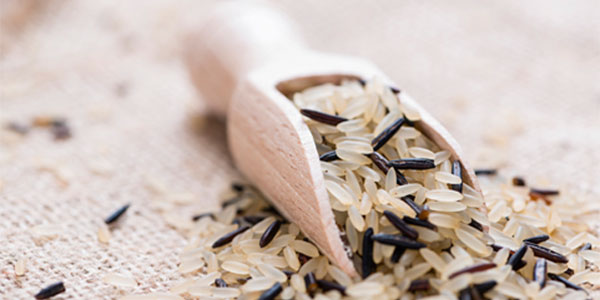A Healthy South Asian Diet
South Asians have a high risk of heart disease, diabetes, excess body fat, fatigue and a number of other health conditions, mainly due to genetic factors and their high-carbohydrate lifestyle. Many other Americans, while often eating different types of carbohydrates than those found in a traditional South Asian diet, are also at risk for such health problems due to their dietary habits.
Ronesh Sinha, M.D., an internal medicine doctor with the Palo Alto Medical Foundation and author of the “South Asian Health Solution,” says white rice and flatbreads are staple foods in the traditional South Asian diet, but eating uncontrolled portions often contributes to weight gain and associated health conditions, such as diabetes and heart disease.

He says the excess amount of insulin (a sugar-regulating hormone secreted by your pancreas) that’s derived from carbohydrates is often to blame for wreaking havoc on people’s bodies — especially when it comes to the formation of extra body fat. He says consuming fat doesn’t cause your insulin levels to rise, but consuming carbohydrate-rich foods does and should be monitored.
“If you have a condition called insulin resistance, which most South Asians have to some degree, excess carbohydrates can’t be utilized by the muscles and are instead redirected to your fat and liver cells, increasing cholesterol production and your chances of serious health problems,” Dr. Sinha says. “Many of my patients who have the most excess body fat are South Asian vegetarians who consume no meat or excess fat in their diet, but instead consume lots of carbohydrates in the form of rice, breads, lentils, beans and starchy vegetables like potatoes.”
However, rice and other such carbohydrates do have their place in everyday diets, as many are gluten-free and beneficial for people with gut inflammation issues. Dr. Sinha says the key is eating healthier varieties of carbohydrates in amounts that are reasonable for your activity levels. An endurance athlete can afford to consume greater amounts of healthy carbohydrates, which will be consumed by the muscles for energy, while a sedentary office worker’s inactive muscles will not need the carbohydrates and instead push it toward the fat cells or liver.
To make a traditional South Asian diet healthier, follow these tips:
- Limit refined grains — These are grains that have been processed and modified from their natural form, meaning they have lost nutritional value along the way. These include foods such as white rice and white flour.
- Choose whole grains — When you can, include unrefined healthy grains such as brown rice, wild rice, sprouted brown rice, cracked wheat, whole wheat couscous, barley, quinoa, millets (such as jowar, bajra and ragi), amaranth, steel cut oats, and sprouted whole wheat or rye bread.
- Try gluten-free grains — If you are sensitive to gluten, choose gluten-free grains, such as amaranth, buckwheat, millets, quinoa and rice. Substitute your white rice consumption with these healthier alternatives.
- Don’t rinse your grains — If you do need to eat white rice occasionally, keep in mind that rinsing your grains removes the enriched vitamins and doesn’t remove any extra starch.
- Include fermented foods — Plain yogurt, Greek yogurt, lassi, buttermilk, pickled vegetables, idli and dosa are great for maintaining gut health. Use idli and dosa sparingly.
- Limit fried foods — These include vada, samosa, paratha, sev, pakora, plantain chips, namkeen or chevda mix, puri, kachori, motichoor and laddu/ladoo.
- Limit sugary foods — These include halwa, gulabjammun, cookies, cakes, pies, puddings, jalebi, pheerni, burfi, ras malai and imarti.
- Drink fewer sugary beverages — Avoid juice, soda, sweet lassi, sweet tea or coffee. Coconut water (juice from a young coconut) is highly nutritious because it contains many minerals, but it’s high in sugar, too. It’s best to drink after an intense workout.
- Eat fruit as dessert or snack — A small-sized piece of fruit the size of a tennis ball or about four ounces total weight is ideal. Organic berries are an excellent choice.
- Use sugar substitutes — Instead of using refined white sugar in recipes, try using unrefined coconut sugar, maple syrup, molasses, raw honey or stevia in moderation.
- Load up on non-starchy vegetables — Fill your plate with cauliflower, cabbage, Brussels sprouts, green beans, peppers, capsicum, leafy greens, broccoli, carrots, celery, summer squash, tomatoes, onion, okra and karela. These foods will help you feel full and get more fiber in your diet.
Discover Similar Stories
Choose a topic below to read more stories like this one.





